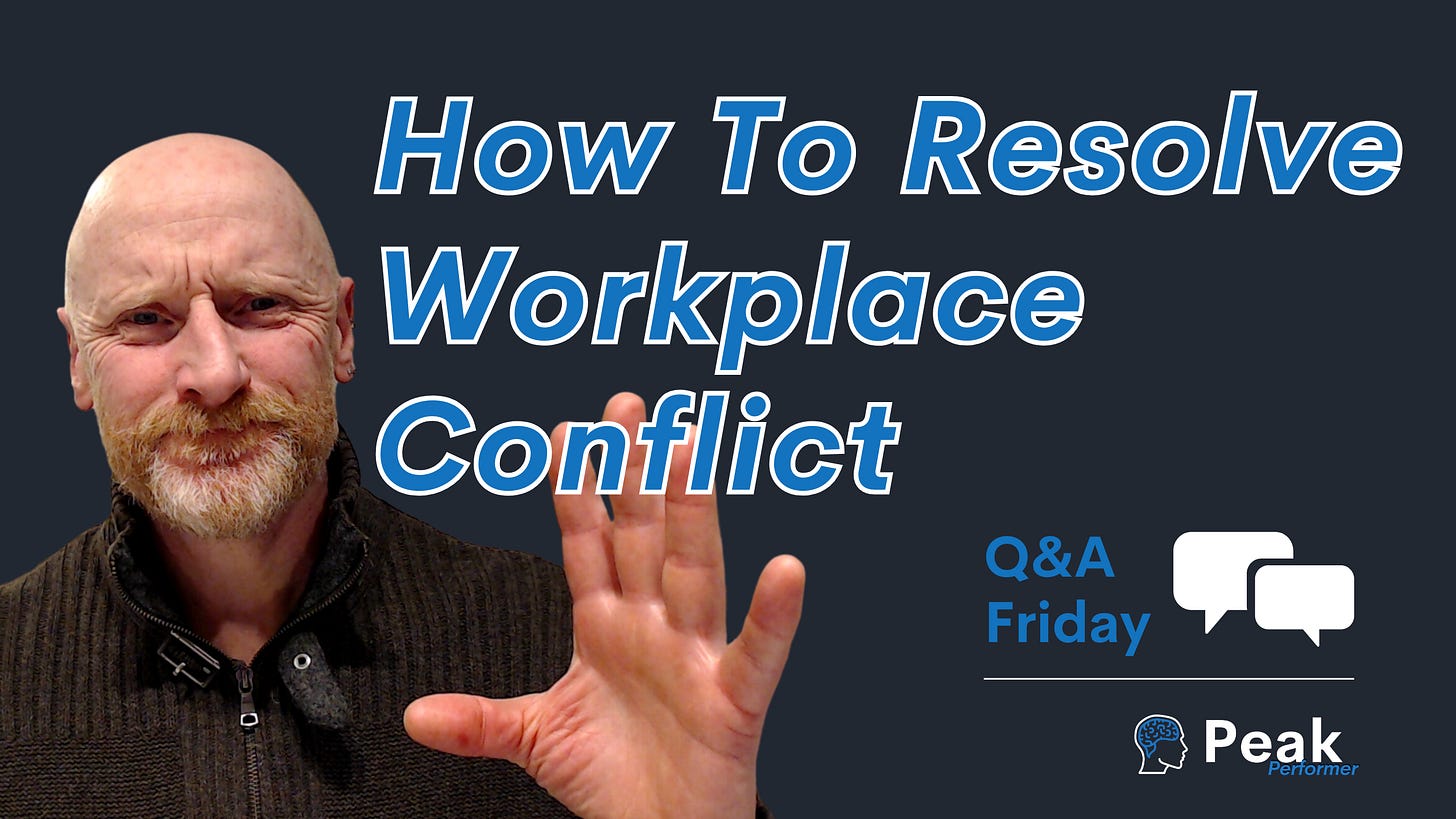This week in Q&A Friday, I'm discussing how to resolve workplace conflict. We often feel that ranting and raving about our problems will help us feel better, and maybe that's true. But only for a very short time. If we are to really feel better, we've got to find a lasting solution. Jumping up and down about the problem is unlikely to solve it. In fact, it's like pouring fuel on the fire.
Workplace conflict is an inevitable aspect of professional life, often leading to frustration, anxiety, demotivation and even depression where it is prolonged. Often, we attempt to deal with these challenges by suppressing them or seeking validation by ruminating and incessantly talking about them to colleagues and friends. They may empathise with us, but perhaps for fear of offending, they tell us how right we are and how outrageous the other person is. But this only reinforces the problem.
Repetitively venting about the issue is akin to pouring petrol on the flames of a burning house. Instead of turning to those who might unintentionally amplify the problem, consult with someone who can offer practical solutions, such as professionals or colleagues capable of providing objective perspectives. The goal is to avoid reinforcing negative emotions and focus on resolution.
Self-awareness plays a significant role in conflict situations. Obsessing over problems can lead to increased anxiety and even depression as we develop a narrow focus and miss potential solutions. It can be said to be an indulgence in the obscene, in the drama of our own lives. This phenomenon is related to the psychological phenomenon of 'inattentional blindness'. This is where we only notice what we're looking for and fail to notice solutions in plain sight.
There is also the possibility that the situation is unresolvable; the house is engulfed in flames, so to speak, and so the only option available to us is to leave. Sometimes, we simply need to find a new place to work, one that is supportive, progressive and growth-oriented. Challenge is important for growth, so this is not an invitation to run from challenging situations. Instead, it's a case of reading our environment and finding others that can help us in that process.
Practical steps for resolving workplace conflicts include:
Early Intervention: Address issues promptly before they escalate. Watch your thoughts about it - are you fuelling the fire or putting it out?
Constructive Dialogue: Engage in conversations aimed at finding solutions rather than assigning blame. If that feels impossible, look for someone who can mediate.
Professional Guidance: Seek assistance from professionals or impartial colleagues who can offer objective advice. Often, others can see possibilities that we cannot.
Self-Reflection: Assess your contributions to the conflict and be open to change. How might you read this situation differently? Is how this other person behaves necessarily about you or is this common behaviour on their part?
Positive Focus: Shift attention from problems to potential solutions to foster a more optimistic outlook. What can you learn from this situation? If you have decided to leave and find another job, what positive can you take from the experience?
While some conflicts may necessitate leaving a particular job or relationship, many can be resolved through early intervention, constructive communication, and focusing on solutions rather than problems. In this search for solutions, it is also advisable to look out for euphemistic language designed to mask or lessen the true reality.
I contributed to a newspaper article on this topic that was published today. You can read that here.






Share this post